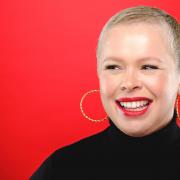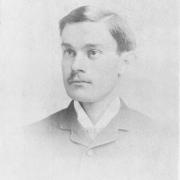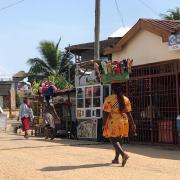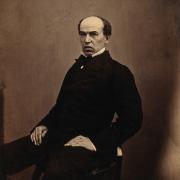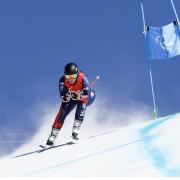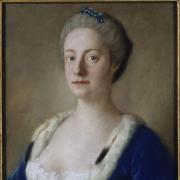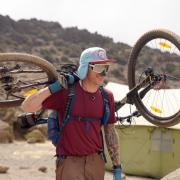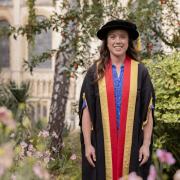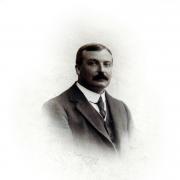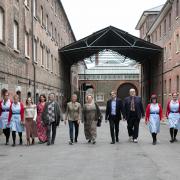Two sisters from Kent are on a mission to help young people cope with physical and mental disabilities via the healing power of their equine pets

The natural healing and calming influence of horses Ben, Jigsaw, Pudding and Breeze is helping to transform young people’s lives across the county and beyond through a series of therapeutic practises which are centred around spending time with these animals.
The sessions at Teal (Therapeutic Equine Assisted Learning) are led by co-founders of the not-for-profit community interest company Lucy-Anne Petto and Lisa Heath and their four specially trained horses.
The work involves a mix of hands-on sensory and loose work in the sand school as well as many other relaxing and confidence-boosting exercises. These practises have been honed by the two women and their rescued horses during the past 18 months and the outcome for all of the children who attend has been nothing but positive.
Lucy-Anne explains: “The only horse that was actually bought for therapeutic work was Breeze, all the others were already family pets. But when we set up Teal we decided that we were going to need a fourth member of the equine team and went out specifically looking for a horse with the right traits for the work that he or she would be doing.”

Currently housed at the stables in Marsh Green, near Edenbridge, is nine-year-old skewbald Ben who, according to the sisters is very confident, social and likes to be centre of attention. “He’s very good at giving feedback – he’s very clear about what he’s telling you,” Lucy-Anne says.
Jigsaw, aged 11, is much more reserved and quiet and only when she feels safe will she then let her true self come out. Meanwhile, herd leader Pudding will join in with anything and will do anything you ask of her. “Once you are friends with her, she will protect you. She has a lot of responsibility being herd leader and she is the oldest at 27,” the younger of the sisters explains.
The baby in the group is Breeze, who was only two weeks’ old when she was rescued and, according to the sisters, has a sweet and relaxed nature.
Lisa says a lot of time has been spent training the horses, who are all capable of leading wheelchairs and are not fazed by the loud noises that many of the children who attend sessions can make.
The horses know how to work with different types of equipment used in obstacle courses that children make as well being able work with breathing techniques which some of the non-verbal children use to command the horses to move or stop.
The formidable team is enriching the lives of many children and adults who suffer with many different developmental, physical or mental health issues such as depression or anxiety. The sisters say that 90 per cent of the children they see have autism.
Other people come to help themselves cope with social problems such as bullying and low self-esteem and adults with Hodgkinson disease have also found equine therapy beneficial. The team at Teal has also helped children overcome fears about animals.
Lucy-Anne, who has a background in caring for children, says: “There’s no pressure, there’s no expectations, it’s something that progresses naturally and we are not sitting here with young people saying you need do this and you need to do that, why are you upset? If they want to divulge then they can and sometimes all they want to do is sit and talk to the horses, which they can.”
Some of the children find the therapy life-changing as Lisa found out to her delight when her own daughter Tiffany defied medics who told her she would never walk or talk.
Lisa explains: “Tiffany was six and had been at a speech and language unit and made absolutely no progress so I took her out for a year while I was waiting for a full SEN (special educational needs) placement. Her first diagnosis was global developmental delay, followed by sensory processing disorder, hypermobility, ligament laxity, autism, oral motor and generalised dyspraxia and speech and language delay. Things were looking quite bleak at the time.
“She was completely non-verbal; she was silent. It was a scary and stressful time and really upsetting. Nowadays we work with parents in the same situation I was in and there’s a big network now due to social media. You can go and meet other parents and talk about things. But then there was no support, I felt really isolated and alone and I used to cry myself to sleep thinking I’d never hear my child talk.”
At the time Lucy-Anne’s rescued horse Artie (who died in 2011) was kept at a livery yard in Westerham – the town where the sisters also live – and he was about to change everything for Tiffany and her family.
Lisa says: “We thought while Tiffany was out of school she could come and see the horses, groom them and lead Artie around, but she’d only manage five or six steps and then she’d fall over – but he’d wait for her to get back up. Then they started playing hide and seek games and then she started to ‘click’ with her tongue to get his attention.”
A year later Tiffany returned to Great Ormond Street hospital and astounded doctors with her new-found vocabulary of 100 words. Tiffany is now aged 15, happily settled at school in Tunbridge Wells and continues to progress well.
Lucy-Anne says there is never any expectation between horse and client which she feels is one of the key reasons why equine therapy works so well and in Tiffany’s case changed her life forever.
“It was thought that she might not speak to a stranger because her speech isn’t as flowing as mine or yours and because she used to try and explain things to people and they didn’t understand. One of her targets this year was to talk to someone she didn’t know and so far, she’s given a TV, radio and two newspaper interviews, as well as being in Take a Break magazine, so I think we have smashed it. I feel so extremely proud and she likes being famous,” Lisa laughs.
Now able to hold a basic conversation,riding regularly and helping out at Teal the future for the teenager looks bright.
With her own dog having learnt Makaton sign language, Lisa says her daughter is keen to teach more dogs to learn this skill to help other non-verbal children.
Lucy-Anne was so inspired by Tiffany’s progress that she set about creating Teal and embarked on a professional training course at another equine therapy stables in order to learn how to go about it. She also completed a counselling skills course and an NVQ in children and young people.
“Artie deserves a lot of credit because too because if it wasn’t for him and what he provided for Tiffany, the idea for Teal wouldn’t have come together,” Lucy-Anne adds.
The equine enthusiast explains her love of horses began when she was eight after her family relocated to Dorset. “My school was next to the big Army yard and I used to sit there and watch horses all day long and I begged and begged my dad to give me riding lessons for a whole year. Then I got my first horse and we moved back to Kent and my whole childhood from there on was about horses.
“It’s amazing to see the progression of the young people that come here and it’s also amazing to see the progression of our three female horses coming from such bad backgrounds and they’ve managed to put trust back in us and they’re now helping people as well. It has such a massive knock-on positive effect – it is extremely rewarding.”
Lisa adds: “One of the best bits about all of this is being able to reassure other parents that they are not alone. It’s great to be able to tell them that they don’t always have to think the worst, things can and will change. That’s why we want to run a carers course so parents and carers can meet others in the same situation and not feel isolated.”
The horses do have time to just be pets and have a minimum of two or three days off a week which the sisters stress is really important.
Lucy-Anne explains: “We keep them as naturally as we can, they have as much time out in the field as they can and we have designed our stables to be as open as possible. We have windows cut out between their stables so they can continue to groom each other because we have got to have happy, settled, contented horses in order for them to be able to deliver the work that they are here to do.
“They are very happy horses and Tiffany and I both go out hacking round the farm at the weekends together, we still compete with them at shows – so they are family pets and our part of the family one hundred per cent. I couldn’t imagine a life without them.”
Find out more
Teal, info@teal.equine.com or 07506 965 789




